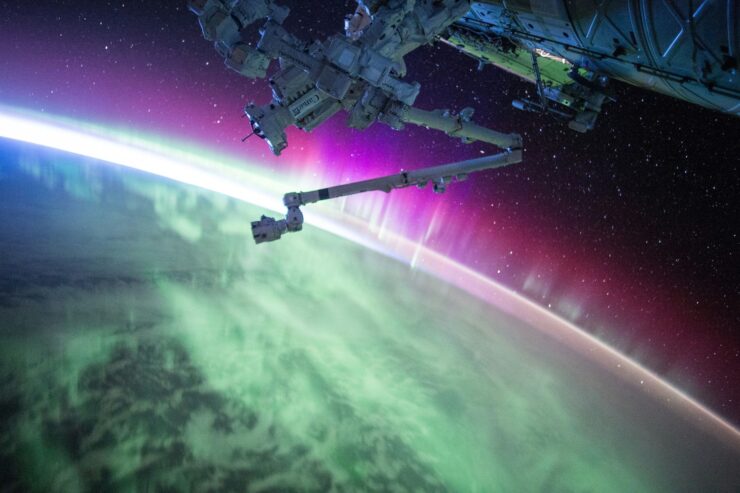One of the essays I have long been considering is a piece on that subgenre known as hard science fiction. But before I could write an essay on hard SF, I had to figure out just what is meant by hard SF.
Now it may seem odd that I, someone who thinks of himself as a fan of hard SF, who could point to his shelves of books by Poul Anderson, Robert Forward, and Hal Clement as evidence, cannot, when I come down to it, come up with a canonical definition of hard SF.
I recently realized that there is no such thing as a unified subgenre; rather, there are a number of things that are often considered hard SF but that don’t necessarily share all that much in common.
Wikipedia puts forth a definition: “Hard science fiction is a category of science fiction characterized by concern for scientific accuracy and logic.” Interesting phrasing, that “concern”. Not “demonstration of,” or “adherence to,” but concern. Concern is nicely fuzzy. There is a lot of wiggle room in “concern.” Enough for at least five overlapping, intermingled, but sometimes separate hard science fictions.
The first variety is orthogonal to the other four. It’s pure marketing, and has little to do with actual science content. Hard SF is used to denote the work of science fiction authors in a particular social circle largely but not entirely based on the US West Coast. Their books are usually at least a little bit science-ish, but really what’s being sold here is a set of overlapping conservative and libertarian political and social views. Do you like Larry Niven’s books? Well, you might like Greg Bear’s. Do you fancy Poul Anderson’s later SF novels? Consider Vernor Vinge’s.
Purely marketing-based hard SF overlaps with the other varieties but does not fully contain any of them. The other four flavors of hard SF each engage with science and related activity in different ways.
There is what one might call phase-diagram hard SF1, in which the well-informed author entertains the reader with stories illustrating little known or counterintuitive aspects of science as it is known at the time of writing2. The author tries their best to play fair with the reader, sticking to the known facts as best they can. Such impossible or dubious elements as are included will likely be present to facilitate getting the protagonist somewhere where they can appreciate phase equilibrium curves up close and personal… but those implausibilities won’t be the focus of the story.
Not terribly distant from phase-diagram SF is the “here there be dragons” variety. This type of hard SF plays with possible science—fields lacking consensus and, in some cases, any concrete data. The stories explore what might happen if some as-yet-unsupported theory turned out to be true (or at least true as far as we know at the moment). The author is still playing fair, but the foundation of their story is conjectural and may later be shown to be impossible.
Either of the above may also exemplify the sort of hard SF founded in the author’s confident misapprehension of science as known at the time of writing3. The author is trying very hard to write phase-diagram or here-there-be-dragons SF, but alas, their reach has exceeded their grasp. I have a certain fondness for this variety, partly because it facilitates snarky potshots at certain authors’ grasp of planetology, biology, or basic thermodynamics, but also because it’s possible to be educationally wrong. Understanding how and where someone erred often helps one avoid mistakes of one’s own4.
Finally, there’s the sort of hard SF that embraces the superficial forms of either the phase-diagram or here-there-be-dragons type, but in which the author deliberately fudges the science. There are any number of reasons why this might seem the logical thing to do. This is my least favorite flavor, as it seems a bit dishonest, and also because authors are sometimes excessively convincing in their whimsy. It is left to others to explain why, for example, one cannot shed heat by radiating it away with a laser.
Did I miss anything that gets lumped under the umbrella of hard SF5? Is there a coherent, unified taxonomy that makes sense of it all? Let me know in comments below.
- In his introduction to the 1965 Ace reprint of Hamilton’s Crashing Suns, Donald Wollheim fulminated that “today’s slide rule writers are too brainwashed to attempt” stories with “color, excitement and adventure.”To this day, I have no idea whether D.A.W. was vexed by a few specific authors or the state of the field in general. 1965 is the era of New Wave SF, hardly slide rule friendly. The lesson is that there is no lawn so large as to lack at least one person demanding other people get off it.
↩︎ - Strictly speaking, phase-diagram SF could include every mundane novel without egregious science errors that has ever been written. In practice, only weirdos try to claim that Singin’ in the Rain, The Count of Monte Cristo, or Hec Ramsey are SF. ↩︎
- We will leave aside for the moment the problem posed by Science Marching On. It renders unconvincing once plausible tales of Mercury’s eternal nightside and a 2020 discovery of a twelfth Saturnian moon. ↩︎
- Sometimes I think of all the people who, having read my true-life anecdotes, have learned not to strike a match while standing in a giant cloud of gasoline vapor, have never rudely mocked a home invader, and have not attempted to hand-feed a vicious dog. Although to be fair, mocking a home invader did accomplish its intended purpose, albeit through unforeseen means. My third instructive experience (vicious dog) vastly exceeded its goals. I recommend it to anyone who has at least one superfluous hand. Again: It’s important to learn what NOT to do. ↩︎
- “What is hard fantasy?” is a different essay. ↩︎










